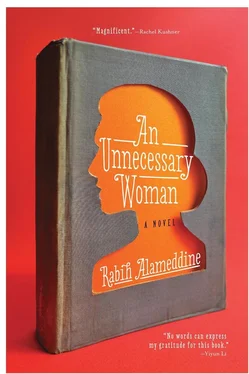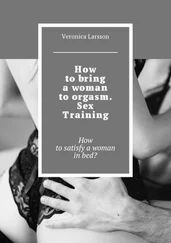What was difficult before the war, navigating the maze of alleys, had become tribulation. Puddles that used to form only after rainfall had become permanent lakes of sewer-brown, the stench suffocating. My thighs were sore from being unnaturally stretched with each lake-avoiding step. I had to maneuver my way around heaps of discarded furniture, rotted beams, broken plates, and twisted silverware. A giant eucalyptus, seemingly the only living thing in sight, added to the confusing aromas (shit and Vicks); it flourished in its exotic environment, dwarfing the surrounding shacks of brick, of cement, of aluminum siding, even cardboard. A happy and content immigrant, proud of its achievement and splendor, the tree would probably have laughed off any suggestion of returning to Australia. Its sadly hued green appeared bright against the poverty of color, all faded grays and dirty whites. If only someone had planted a bougainvillea; it would have flourished in these fecund crannies.
When Ahmad’s mother, who’d metamorphosed into a small bundle of jerky gestures and imprecations, answered the shingles door, she said that her ungrateful son hadn’t lived there for years. I should tell the coldhearted mother-hater that the woman who conceived him, the woman who carried him for nine painful months and cared for his every need as he grew up, needed bread.
Ahmad had moved up in the world, out of Sabra.
Forgive me a brief digression here. It’s only to offer you a fuller idea of Sabra.
Years later, after the war, in the midnineties, a local artist asked me to help him sell prints of a map of Beirut and its suburbs that he had lovingly painted by hand. He was obviously smitten with our city. He’d painted Beirut as if it were the whole world, complete within itself, each neighborhood a different country with its own color, streets as borders, the tiniest road documented, every alley, every corner. He’d even drawn in little hydrographic symbols (fleurs-de-lis) where all the water wells are supposed to be — Beirut, whose name is derived from the word well in most Semitic languages because of the abundance of its belowground water.
A complete sphere, Beirut as the total globe, the entire world. The painter even created a Greenland effect, stretching the longitude lines at the top and bottom, with increasing distortion of size as one moved north or south of the city. In the map, Beirut existed outside of Lebanon, apart, not part of the Middle East. It was whole.
As a Beiruti through and through who in a long life has spent only ten nights away from the suckling breasts of her city (Grünbein: “Travel is a foretaste of Hell”), I considered the map a chef d’oeuvre, a stunning, glorious work of inspiration. The more I lauded, the wider his smile. We stood side by side in my bookstore, staring at the print I had hung on the wall. He tried to light a cigarette, but his hand shook too much. I told him he couldn’t smoke inside. He confessed nervousness. I led him outside, carrying the map. “Let’s see it in Beiruti daylight.” In front of the store window, he shrugged off his uneasiness and regained confidence. I noted that the streets of Sabra were not named and were less delineated than the other streets.
“I tried,” he said, “but everything worked against me. The streets were impermanent, transmogrifying at night into something else as if to trick me.” The books behind the glass window were witnesses to what he said next: “The streets and alleys of Sabra multiply at night like rats — like rats, I tell you.”
He had painted the Sabra camp a very light blue, like the Siberian tundra in some maps. The cartographer must have been loath to include the camp in his map. I considered giving him Bruno Schulz’s book, which negotiates a similar situation. Schulz wrote: “On that map. . the area of the Street of Crocodiles shone with the empty whiteness that usually marks polar regions or unexplored countries of which almost nothing is known.”
Ah, Cinnamon Shops is still one of my favorite books. That map of Beirut still hangs on my bedroom wall.
Sabra? I haven’t been back there.
Back to Ahmad. I first met him when he was a timid teenager in 1967, lanky and wispy, a character out of a Chekhov story, with peach fuzz and kaffiyeh, trying to emulate his hero Yasser (George Habash and the Popular Front, which was beginning to form that same year, wouldn’t come into his life for a while yet). He wore bone-framed glasses that were too big for his face. I didn’t notice him standing before my desk until he ahemmed. I was confronted by the smell of licorice and anise, his tooth-crushing candy drops. He was sent to me by another bookstore in the city, told that no one else could help him. He was looking for a book by an Italian, but couldn’t remember the title or the name of the author. He had to give me a little bit more to go on, I told him. Italians had been writing books for hundreds of years.
He said, “The hero of the book was not a hero, he killed many lizards.”
I didn’t laugh, but my eyes must have betrayed me. He blushed and backed up a step. I walked him over to a stack and handed him The Conformist .
“The lizards are in the early pages of the book,” I said.
He held it in his hands as if it were the Quran. Did I have it in Arabic? I didn’t think it had been translated (I wouldn’t translate it because I found it didactically dull, not that I would have showed him the translation had I done one). His English wasn’t very good.
“I’m not a teacher,” I said. “Reading a book would definitely help your English.”
Was it all right with me if he examined it to see if he could read it?
I returned to my desk. He sat on the floor leaning against a bookshelf, his legs splayed before him, the rubber soles of his shoes facing out, conspicuously visible. Three books faced out as well, As I Lay Dying, Goodbye, Columbus, and A Moveable Feast, the last two having recently arrived in Beirut. Separated by the spines of other books, they formed a triangle that floated atop his head. It was only then that I understood he couldn’t afford to buy a book, any book. The army pants he wore were neither a fashion nor a political statement — they were inexpensive.
I asked if he had killed lizards when he was a boy. He asked for the meaning of the word magpie, the word austerity, and the word covet .
I liked him.
He loved the book, finished it in twenty-three days (the bookshop wasn’t open on Sundays). He appeared every afternoon, sat in the same spot. On the infrequent occasion that I had a customer when he arrived, he’d sheepishly wave and tiptoe to Moravia’s book, which he’d returned to its position the day before. By the second week he began to do little things around the shop, by the fourth he was signing for deliveries. I tried to have him hired, but the owner refused. I needed the help. I was the only employee. If I was sick, the bookshop didn’t open.
“Give him part of your salary,” the owner replied. “The bookshop isn’t a moneymaking enterprise. It’s a labor of love.”
Not exactly. I provided the labor, I provided the love, and he enjoyed the fugitive cachet of owning a bookstore. Ahmad worked in the shop without pay for four years. He didn’t seem to mind. He helped me whenever he could, sat in his spot and read during slow periods. He came and went as he pleased, may not have been punctual, but he was fervently devoted to the bookstore, to his reading, desperate to educate himself. When I apologized for working him without pay, he replied that sons always worked without recompense.
One day he decided to paint the interior of the shop. He’d ended up with free cans of light lavender paint. It seems someone at the refugee camp had bought them for a bargain before realizing that no one would want their walls that color. Ahmad left the spaces behind the stacks unpainted because we didn’t have enough cans. I loved the color and kept it till the bookshop closed and I retired.
Читать дальше












